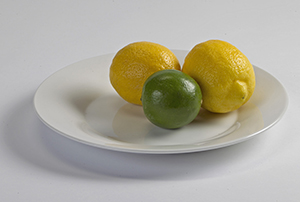Healthy kidneys balance the amount of fluid that enters and leaves the body. If your kidneys can't maintain this fluid balance, you may need to limit your fluid intake. This handout can help you take in the right amount of fluid each day.
Hints to control thirst
When limiting your fluid intake, you should count anything that melts at room temperature as fluid. Such things as ice, flavored ice pops, ice cream, soup, and gelatin desserts all count as fluid. The tips below can help you feel less thirsty without drinking extra fluids:
-
Suck on lemon wedges, hard sour candies, breath mints, thirst-quenching gum, or breath spray to moisten your mouth when you’re thirsty. Choose sugar-free types if you have diabetes.
-
Eat frozen fruits between meals instead of drinking fluids. Try frozen grapes, blueberries, or strawberries.
-
Control your blood sugar level if you have diabetes.
-
Eat less salt so you will feel less thirsty.
-
Read food labels to find out salt content. Buy fresh foods or foods with no sodium or low sodium.
-
Rinse your mouth with water but don’t swallow it.
-
Suck on a few ice chips. Freeze fruit juice or lemonade in an ice cube tray and use it as part of your fluid. It will be softer and easier to chew than regular ice cubes.
-
Measure your drinking cups, mugs, and glasses to see how many ounces of fluid they really hold. Many sizes can be misleading.
When you drink
Drink only when you are thirsty. Don't drink to be social or out of habit. When you do drink, follow these tips:
-
Measure out the amount of water you will drink during the day. Put the water in a container, and drink from that container only.
-
Drink only from cups, mugs, or glasses you have measured, so you are sure how many ounces of fluid they really hold. Many sizes can be misleading.
-
Drink from a small glass or cup. Drink slowly.
-
Take medicines with mealtime liquids.


